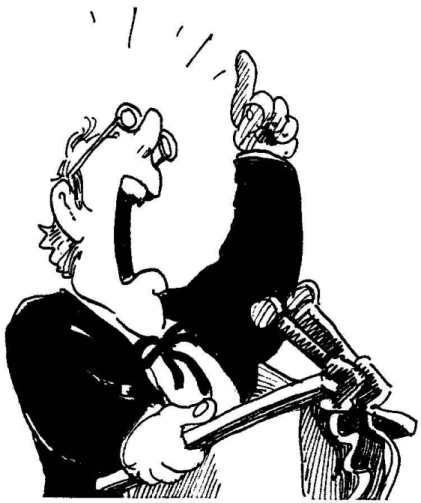
A
"Soap Box" Perspective / "Rant"
This "rant" was submitted to the Prairie Messenger and published . I do not even remember when, but it must be before 1993 as I still give my address as "Prince Albert"
Vocations cannot be institutionalized without danger
The Editor: A while ago a friend asked me what I thought was the reason for the shortage of vocations to the priesthood and religious life. My reply was that I did not believe there was a shortage of "vocations" to either the priesthood or religious life. And then I went on to explain what I meant.
I believe there is only one call by God for all of us -- for us to be followers of Jesus, and by following him, to become holy, as he is holy. That one call is there for us all the time, and God provides endless opportunities and occasions for us to respond.
The idea that there is only a once-a-lifetime call or vocation, and that it is to a particular "way of life" is just silly. I know that we have all heard that argument, that God calls us to a way of life, the priesthood, religious life, marriage or a single life (that "single life" part has only been a recent addition to the lexicon).
That idea suggests that God has no plans for us as children, or as young people, no plan for a divorced person, no plan for a widow or widower, no plan for an ordained priest working outside of pastoral or parish ministry, etc.
God loves his people, and he provides for people to minister to the needs of his people. He calls good men and women, good children and seniors, people with a desire to follow Jesus by responding to the service needs of his people.
God gives them the charisms needed for the growth and support of the community, and he inspires the charity within these good people to respond to the needs of the community. Anyone living within our Christian communities sees this to be so every day!
Part of the difficulty is that our institutional church starts by refusing to recognize God's call to special leadership and sacramental service to half of the people that God does call, to the women of this community.
Then further, our institutional church says that God can only be calling people who believe that proper service is through a celibate lifestyle, only by service within an institutional structure that too often values structure and hierarchy and preservation of the institution above all else, even above the need for sacramental and other service to the People of God in the community.
The difficulty continues. When the Spirit moves a person to want to follow the example of Jesus, that Spirit helps the person to understand that the model of service and leadership Jesus left us was the washing of his disciples' feet.
The episcopal palace, the perks of the clerical collar, the traditional exercise of authority and control over an institution seem very remote from that model left by Jesus.
When persons called by the Spirit to be of special service to God's community honestly seek to respond to the service model of Jesus, they have difficulty seeing that model central within the modern example of institutional clergy and religious life; the person called by the Spirit to a life of holiness understandably can decide that a response to God's call must lie outside of canonical priesthood and religious life.
It is also tragic that some of the people drawn to seek a life as clergy or religious within the institutional church may be seeking it exactly because it does not follow the model of Jesus washing the feet of his disciples. --Gerald Regnitter, Prince Albert